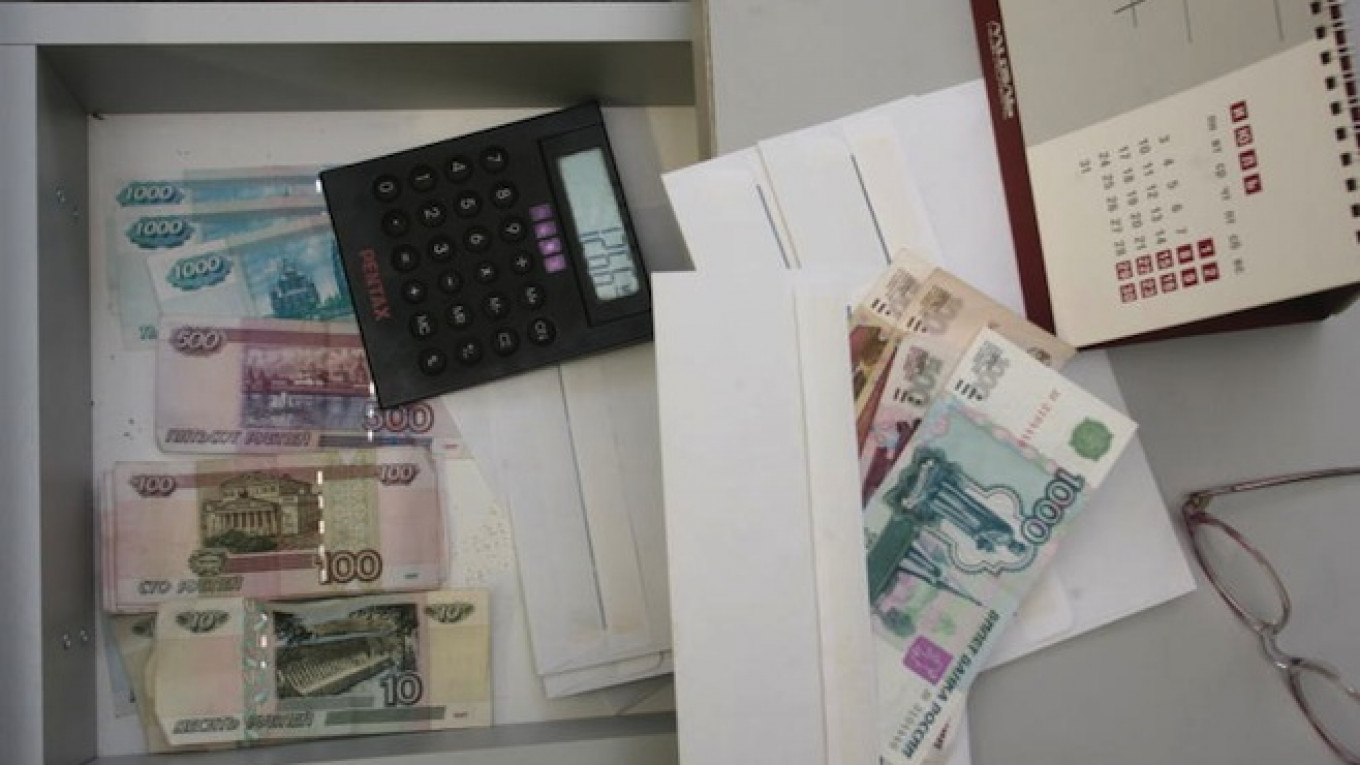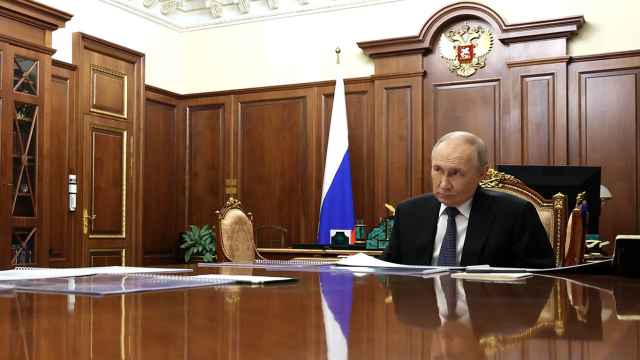Russian civil servants' salaries have increased by 3.8 percent this year, despite a freeze on salaries for public officials amid the country's continuing economic downturn, statistics published Wednesday by federal statistics agency Rosstat showed.
Civil servants earned on average 100,100 rubles ($1,500) per month between January and September — an increase of almost 4 percent compared to the same period last year, the statistics showed.
Audit Chamber employees saw their bank accounts grow most — with an almost 40 percent increase in their salaries compared to last year — and earned on average 171,000 rubles ($2,600).
Civil servants in the presidential administration continued to top the salary ranking, despite a 5 percent year-on-year drop, and earned on average 206,500 rubles ($3,130), the statistics showed.
Employees at federal agencies also saw their incomes shrink — salaries at the Federal Agency for Scientific Organizations plummeted by 30 percent, the Federal Agency for Special Construction cut salaries by 22 percent and the Federal Medical-Biological Agency spent 20 percent less on paying its employees.
The average monthly salary in Russia in October was 33,240 rubles ($500), a three-percent increase from the same month last year, Rosstat statistics showed. Real wages, however, have fallen by around 11 percent.
Russian President Vladimir Putin earlier this year signed a decree slashing his own salary, that of Prime Minister Dmitry Medvedev and several other top government officials by 10 percent, in a symbolic measure amid a struggling economy hit by low oil prices and Western sanctions.
Putin late last year also signed a decree ordering officials' salaries not to be adjusted for inflation in 2015.The State Duma earlier this month passed a bill extending the freeze on civil servants' salaries until January 2017.
A Message from The Moscow Times:
Dear readers,
We are facing unprecedented challenges. Russia's Prosecutor General's Office has designated The Moscow Times as an "undesirable" organization, criminalizing our work and putting our staff at risk of prosecution. This follows our earlier unjust labeling as a "foreign agent."
These actions are direct attempts to silence independent journalism in Russia. The authorities claim our work "discredits the decisions of the Russian leadership." We see things differently: we strive to provide accurate, unbiased reporting on Russia.
We, the journalists of The Moscow Times, refuse to be silenced. But to continue our work, we need your help.
Your support, no matter how small, makes a world of difference. If you can, please support us monthly starting from just $2. It's quick to set up, and every contribution makes a significant impact.
By supporting The Moscow Times, you're defending open, independent journalism in the face of repression. Thank you for standing with us.
Remind me later.






